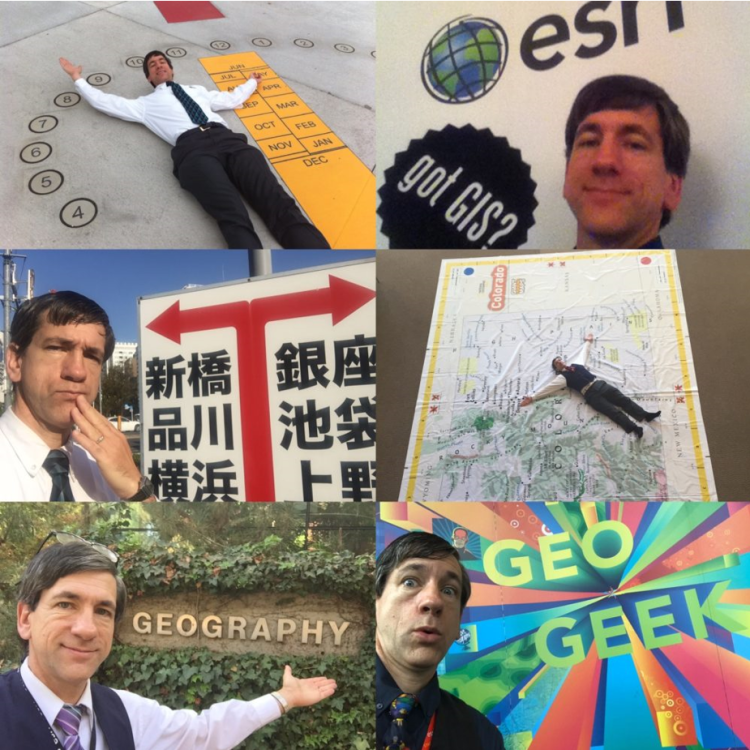Geography Alumnus Joseph Kerski: Be a Positive Change Agent Through Applying Geography!

Geography gives you superpowers! I truly believe that as I have seen how the geographic perspective, content knowledge, and skills have empowered people to make wiser decisions from local to global scale. I hold 3 degrees in geography including 2 from CU Boulder. My research focuses on teaching and learning with geotechnologies. My dissertation title at the University of Colorado was “the implementation and effectiveness of GIS in education”, and I have been living and breathing this topic ever since. In fact, that is a major focus of my role on the Esri education team, which supports schools and higher education use of GIS in teaching, research, and in campus facilities. I have had the honor of serving in all 4 major sectors of society: Government (USGS, Census Bureau), academia (I currently teach at the University of Denver, the University of Minnesota, Au Sable Institute, and Harrisburg Area Community College), private industry (serving on the Esri education team), and nonprofit organizations (I served as president of the National Council for Geographic Education and have been active in AAG, AGU (science), ISTE (technology education), and elsewhere). I have authored 12 books including Interpreting Our World [bloomsbury.com], a new book on teaching mathematics with interactive mapping, Tribal GIS, The GIS Guide to Public Domain Data, and have created 6,000 videos visible here on my Our Earth channel [esriurl.com] I operate a spatial data and society blog on https://spatialreserves.wordpress.com which includes many ethical issues related to mapping. My podcast, called Thinking Spatially, is published monthly: https://podcasts.apple.com/us/podcast/thinking-spatially/id1441426924 I spend about 40% of my time on travel, visiting 35 campuses and 10 conferences annually; I also spend a great deal of time writing curriculum helping people to think spatially and use geotechnologies, including this new set of lessons. On my recent last visit to CU Boulder, I visited faculty, and conducted guest presentations to Professor Schlosser’s cartography course, and about “GIS for good” to the CU Atlas data-and-society students.

